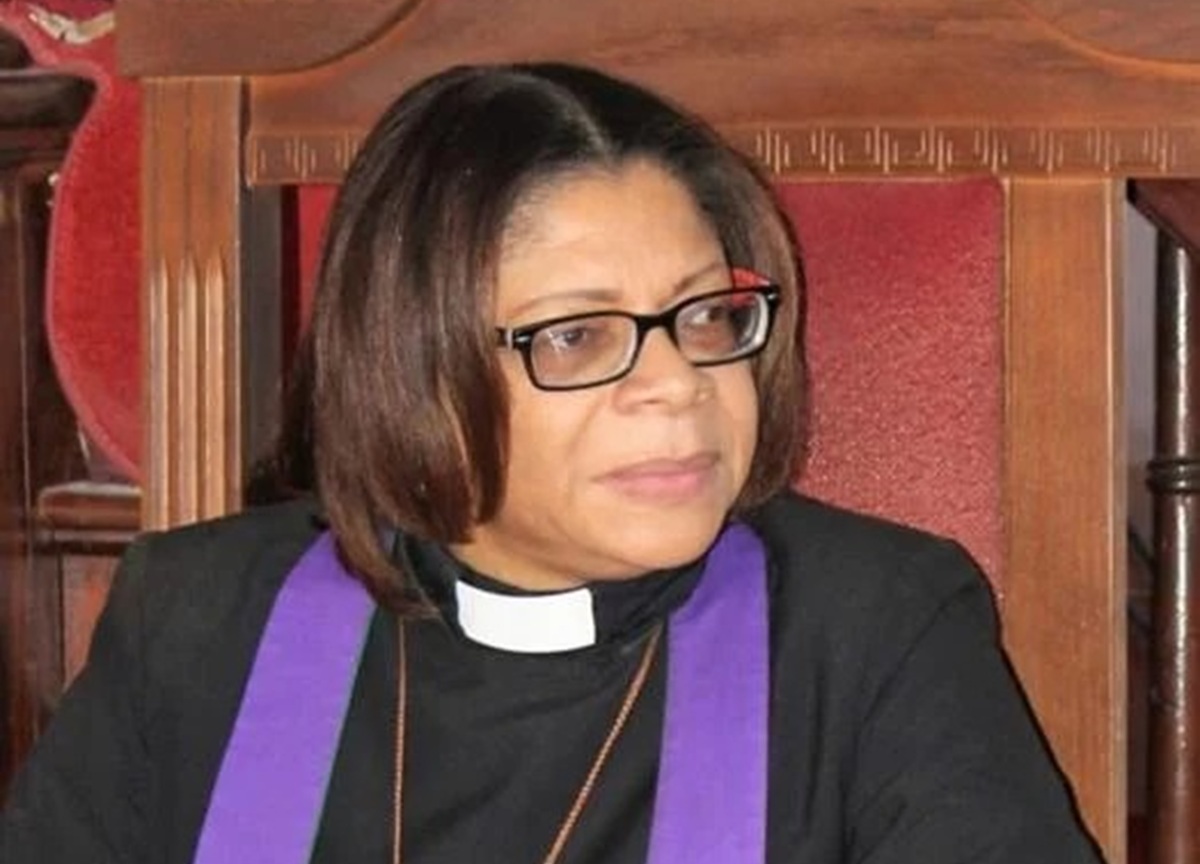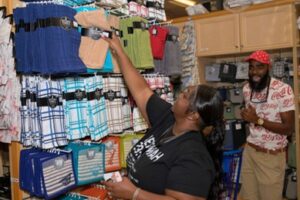August 28, 2025
For the first time in its 213-year history, the Methodist Church of the Caribbean and the Americas (MCCA) will induct a female president/bishop for The Bahamas Turks and Caicos Islands Conference.
Reverend Claire Robinson of Bahamas Turks and Caicos Islands (BTCI) will be installed as the conference’s spiritual leader on Sunday, September 7, during a service at Wesley Methodist Church, Malcolm Road, New Providence.
Robinson’s induction service will be led by Reverend Ron Juan Simson, connectional president, who is stationed at MCCA headquarters in Antigua and Barbuda, the first island where Methodism commenced in the Caribbean.
The induction service will also see the installation of Esther Joy Sargent as vice president, and reverends Kelli Jolly as conference secretary, Emily Demeritte as assistant secretary and Jerry Rolle as conference treasurer.
Robinson was elected to the position during the recent annual session of the BTCI which was held at Rhodes Memorial Church, New Providence.
Robinson assumes the office following previous leadership which included the Reverends R. P. Dyer, W.T. Makepeace, Charles C. Curry, Edwin Taylor, J. Emmet Weir, Raymond Neilly and Theophilus Rolle.
Robinson serves as an itinerant presbyter in the MCCA and held the distinction of being the first female itinerant presbyter and first woman superintendent minister for both North and South Turks and Caicos Islands circuits.
Coming under Robinson will be The Bahamas Conference of the Methodist Church, which has 37 churches, throughout the country.
The Methodist Church of The Bahamas was formed in July 1993 by an act of The Bahamas Parliament.
According to BCMC history, since 1800, the church was a part of the British Methodist Mission. In 1968, one year later than the rest of the Caribbean districts, The BCMC joined the Methodist church in the Caribbean and the Americas (MCCA). In 1967 the Methodist churches in the Caribbean and some countries in Central America had been granted autonomy by the British Methodist Conference. And in 1990, The Bahamas District of the Methodist Church passed a resolution in its January district synod to move for self-governance and autonomy.
According to MCCA history, it is generally accepted that Methodism came to the Caribbean in 1760 through a planter from Antigua, named Nathaniel Gilbert. And that it was sometime in 1755, that Gilbert read a treatise of John Wesley, “An Appeal to Men of Reason and Religion” and that he was never the same man after reading the pamphlet.
As a result of reading the pamphlet, Gilbert traveled to England with three of his slaves. A drawing room meeting was arranged in Wandsworth on January 15, 1759, with Wesley as the preacher. Gilbert and two of his slaves – one of whom was called Bessie, were converted. He returned to the West Indies in 1759. With his return, Gilbert began to preach to his slaves in Antigua.
Upon his death in 1774 the work was continued for a year by his brother, Francis Gilbert, who later had to return to England owing to ill health. At that time, the history shows there were approximately 200 Methodists in Antigua. The work was carried on by a “negress and a mulatto” — Sophia Campbell and Mary Alley who kept the “flock together” by continuing with class meetings and prayer meetings, as best they could.
John Baxter, a Methodist preacher from Chatham, England, arrived in Antigua on April 2, 1778, after hearing about the works of the Gilberts, and of the “flock” that awaiting a “new shepherd.” Within a year, church history said the Methodist community had grown to 2,000 people and by 1783, the first Methodist chapel was built in St. John’s, Antigua, with Baxter as the local preacher.
Reverend Dr. Thomas Coke arrived in Antigua on December 25, 1786, by chance. He had been traveling to Nova Scotia, but his ship was blown off course. Coke was made superintendent of the church in America by Wesley in 1784. It was in 1786 that the missionary endeavor to the Caribbean was officially recognized by the conference in England.
Between 1786 and 1794, Joseph Paul, who was of African descent, came to Abaco from North America. He later moved to New Providence, and gathered a class of five to begin the work of Methodism in The Bahamas.
In 1884, an attempt was made at autonomy with the formation of two West Indian Conferences. By 1903, the history shows the venture had failed. And that it was not until the 1960s that another attempt was made at autonomy.
The second attempt resulted in the formation of the MCCA in May 1967.
MCCA has eight districts – Bahamas/Turks and Caicos Islands; Belize/Honduras; Guyana; Haiti; Jamaica; Leeward Islands; Panama/Costa Rica; and South Caribbean.
Since its early beginnings, the Methodist church has made significant civic, social and educational contributions in The Bahamas – significantly, Queen’s College opened in 1890 to educate Bahamians and other students.
Robinson serves as an itinerant presbyter in the MCCA and held the distinction of being the first female itinerant presbyter and first woman superintendent minister for both North and South Turks and Caicos Islands circuits.
Robinson’s induction service will broadcast on ZNS on Sunday, September 7 at 10 a.m.




 News3 days ago
News3 days ago
 TCI News5 days ago
TCI News5 days ago












